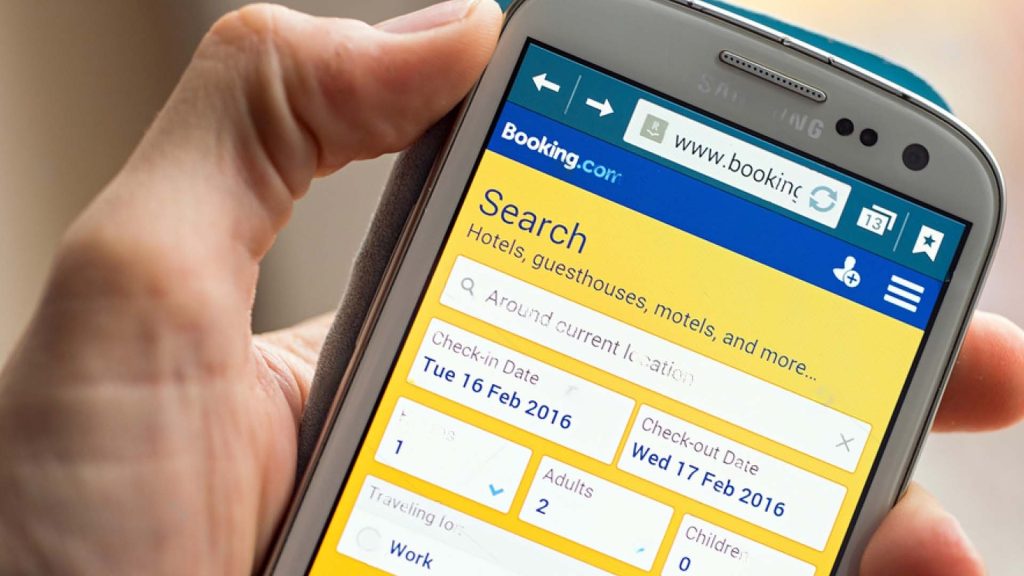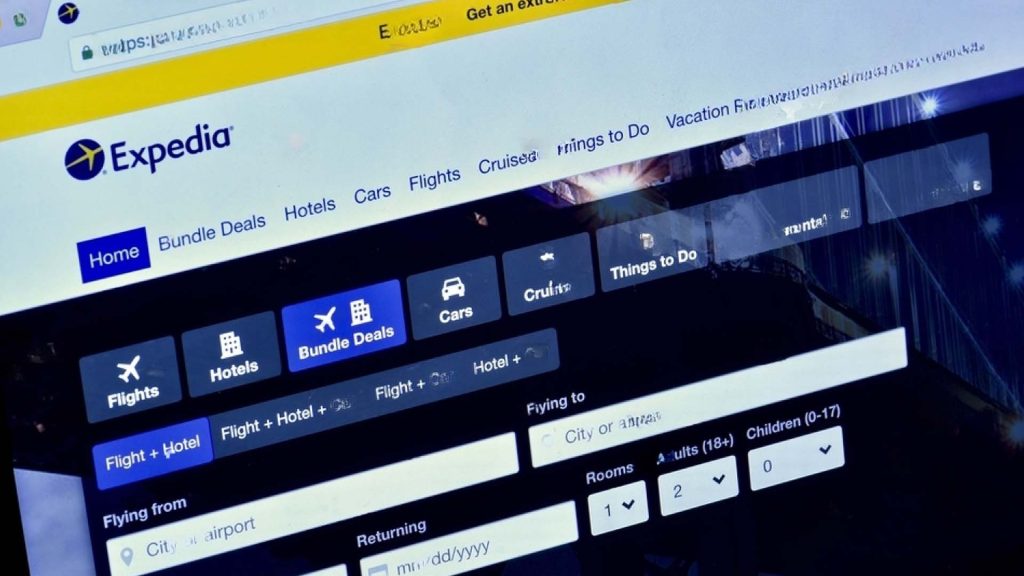Welcome to our comprehensive guide on finding the perfect hotel through our top booking site recommendations. Planning a trip can be exciting, yet overwhelming, especially when it comes to choosing the right accommodation. But worry no more! We’ve done all the research for you and compiled a list of the best booking sites that will make your hotel search a breeze. In this article, we’ll unlock the secrets to finding the perfect hotel that meets all your needs and preferences. Whether you’re looking for budget-friendly options, luxurious stays, or unique boutique hotels, we’ve got you covered. Our recommended booking sites offer a wide range of choices, competitive prices, and great deals.
By using our top booking sites, you can access user reviews, detailed descriptions, and high-quality photos of each hotel, helping you make an informed decision. Additionally, these sites often provide convenient features such as price comparisons, flexible cancellation policies, and 24/7 customer support. So, whether you’re planning a romantic getaway, a family vacation, or a business trip, let our guide lead you to the perfect hotel. Get ready to unlock the secrets and book your ideal accommodation hassle-free with our top booking site recommendations.
Top Booking Sites to List Your Hotel and Reach More Guests
In the vibrant world of hospitality, visibility is paramount. For hoteliers and property owners, selecting the right platforms to list their establishments can mean the difference between full bookings and empty rooms. Here, we spotlight the top platforms that promise unparalleled exposure, bringing properties to the forefront of potential guests’ search results.
Booking.com: A Global Behemoth in Hospitality Listings
Booking.com, a subsidiary of Booking Holdings, stands tall as one of the largest online travel agencies in the world. Founded in 1996 in Enschede, Netherlands, and now headquartered in Amsterdam, it has grown exponentially over the years. Known for its extensive listings that range from luxurious resorts to quaint bed and breakfasts, Booking.com provides hoteliers with the opportunity to tap into a vast global audience. Available in 43 languages and offering lodging reservation services for approximately 2.7 million properties, the platform’s reach is truly global. It caters to a diverse array of properties, including 400,000 hotels, motels, and resorts, as well as 2.3 million homes and apartments across more than 220 countries.
What sets Booking.com apart is its user-friendly interface, which has been designed with the end-user in mind. This intuitive design ensures that travelers can effortlessly navigate through the myriad of options, making the booking process both efficient and pleasant. Furthermore, the platform boasts a robust review system that is highly regarded by travelers. This system enables guests to share their experiences, providing valuable feedback that not only guides future guests but also offers critical insights to property owners.

The success of Booking.com can be attributed to its strategic acquisitions and technological advancements. The merger with Active Hotels and the acquisition by Priceline Group (now Booking Holdings) in 2005 marked significant milestones in its journey, transforming the financial trajectory of its parent company from a loss in 2002 to substantial profit in subsequent years. The platform’s continuous innovation is evident in its adoption of mobile technology. Between 2010 and 2012, it launched mobile apps for various platforms, including iPad, Android, iPhone, and Windows 8, ensuring its presence in the rapidly growing mobile user base.
In a groundbreaking move, Booking.com announced the testing of an AI-based travel planner in 2023. This AI Trip Planner, based on ChatGPT technology, signifies the platform’s commitment to leveraging cutting-edge technology to enhance user experience. It promises to offer services like route planning and answering specific travel queries, initially to a select number of users in the United States.
With its impressive revenue of $18.17 billion and a strong workforce of 21,600 employees, Booking.com continues to dominate the online travel agency landscape. Its comprehensive offerings, global reach, and technological prowess make it a favored choice for hoteliers seeking widespread visibility and for travelers looking for a reliable booking experience.
As we transition from Booking.com’s global dominance, it is essential to explore other platforms that cater to specific traveler needs and preferences. Expedia, with its unique bundle deals, represents another significant player in this realm, offering distinct advantages for both hoteliers and travelers.
Expedia: A One-Stop Travel Solution
Expedia, a renowned name in the online travel agency landscape, is owned by Expedia Group and is based in Seattle. Launched in 1996 as a division of Microsoft, it has evolved into a comprehensive platform that allows users to book a wide array of travel services including airline tickets, hotel reservations, car rentals, cruise ships, and vacation packages. Its unique selling proposition lies in its bundle deals, which cover flights, hotels, and car rentals. These deals not only simplify the travel planning process but also provide cost-effective solutions for travelers. Consequently, this attracts a diverse traveler base, presenting hoteliers with the opportunity to reach a broader demographic of potential guests.
Expedia Group, a leading American travel technology company, operates several well-known travel fare aggregators and metasearch engines, including Expedia.com, Hotels.com, Vrbo, and others. The group’s expansive offerings encompass over 3 million lodging facilities and flights on over 500 airlines, making it a formidable force in the travel industry. This wide reach is further supported by a strong workforce of 16,500 employees, with its headquarters in Seattle, Washington.
The etymology of the word “Expedia” is a blend of “exploration” and “speed”, encapsulating the essence of the brand – facilitating speedy and seamless travel exploration. Over the years, Expedia has undergone significant transformations. It was spun off into a public company in 1999 and underwent a series of acquisitions and leadership changes. Notably, in 2020, Peter Kern was appointed as CEO of Expedia Group and became the highest-paid CEO in the S&P 500 in 2021.

Expedia’s commitment to growth and innovation is evident in its strategic moves. In 2015, the company announced its plan to relocate its headquarters to the Interbay neighborhood of Seattle, purchasing and renovating the Amgen campus on the Elliott Bay waterfront. This expansion and relocation underscore the company’s dedication to providing a conducive environment for its employees and enhancing its operational capabilities.
For hoteliers looking to expand their reach and tap into diverse markets, Expedia represents an invaluable platform. Its vast network, comprehensive services, and reputation for reliability make it a top choice for travelers worldwide, translating into greater visibility and potential bookings for hotel properties.
As we delve deeper into the array of platforms available for hotel listings, the next noteworthy contender is Agoda. Particularly popular in the Asia-Pacific region, Agoda brings a unique set of offerings and advantages to the table, making it an essential consideration for properties targeting that specific geographic market.
Agoda: Bridging Asia-Pacific to the World
Particularly popular in the Asia-Pacific region, Agoda stands out as a distinguished online travel agency. Its strategic focus on offering competitive pricing combined with tailored promotions positions properties in the spotlight, ensuring they receive optimal visibility. Based in Singapore with key operations in Bangkok, Thailand, Agoda has carved a niche for itself by primarily catering to consumers in the Asia-Pacific region. The platform offers comprehensive services that include reservations for lodging, flights, ground transportation, and activities, making it a one-stop solution for many travelers.
Founded in 2005 in Singapore by school friends Michael Kenny and Robert Rosenstein, Agoda has grown exponentially, cementing its position as a leader in the online travel space. Kenny’s previous ventures, PlanetHoliday.com and PrecisionReservations.com, were merged into Agoda, providing it with a strong foundation from the outset. By 2007, the company garnered the attention of industry giants, leading to its acquisition by Booking Holdings, which was then known as The Priceline Group.
Innovation and adaptability are at the core of Agoda’s strategy. This was evident when, in July 2011, they launched mobile apps for both iOS and Android platforms, catering to the growing trend of mobile bookings. Their forward-thinking approach was further highlighted with the acquisition of the Israel-based startup Qlika in 2014. This partnership aimed at automating and scaling Agoda’s marketing systems. Subsequently, the company expanded its research capabilities by opening a center in Tel Aviv.
2018 was a pivotal year for the company. Co-founder Rob Rosenstein transitioned from his role as CEO to the Chairman of Agoda and also became a strategic advisor to Booking Holdings. John Wroughton Brown, previously the COO, took the reins as the new CEO, with Omri Morgenshtern stepping in as the COO.
In its journey to offer a holistic travel experience, Agoda initiated airport transfers through a collaboration with Mozio in 2018. The following year marked significant enhancements for the brand. They refreshed their brand identity with a new logo, custom font, and the introduction of cartoon mascots termed as Agojis. Furthermore, they expanded their offerings by introducing flight bookings and launching B2B products, which included a white-label platform.

However, like many in the travel industry, Agoda faced challenges during the COVID-19 pandemic, which led to the unfortunate layoff of 1,500 employees in 2020. Yet, the company showed resilience, with leadership changes in 2022 seeing Omri Morgenshtern ascend to the role of CEO.
In summary, Agoda’s robust presence in the Asia-Pacific region, combined with its commitment to innovation and customer satisfaction, positions it as an invaluable platform for hoteliers seeking to tap into this dynamic market.
As the digital landscape continues to evolve, another platform that demands attention for its unique offerings and vast reach is Airbnb. Renowned for pioneering the shared economy in the travel sector, Airbnb has redefined the way people perceive accommodations and travel experiences.
HotelTonight:
Initially designed to cater to last-minute travelers looking for discounted hotel stays, HotelTonight has gained immense popularity. Their user-friendly interface allows travelers to grab late deals for top-rated hotels. What makes them stand out is their curated selection, ensuring that even last-minute decisions don’t compromise on quality.
Hotels.com:
A platform known for its extensive hotel partnerships around the world, Hotels.com provides travelers with a vast array of choices. From major chains to independent boutiques, they cover it all. Their reward system, where guests can earn a free night after staying ten nights, is a major attraction for regular travelers.
TripAdvisor:
Beyond being a platform for traveler reviews, TripAdvisor also offers a hotel booking service. The site’s unique value proposition is its integration of user reviews with hotel listings, allowing potential guests to make informed decisions based on past guest experiences. Their “lowest price” feature, which scans various booking sites to offer the best deal, provides added value to users.
Niche Platforms: Specialized Audiences
For properties with a specific selling point or unique charm, niche platforms offer targeted exposure.
- BoutiqueHotel.me:
Tailored for boutique hotels, this platform connects discerning travelers with unique, high-quality accommodations that promise a memorable stay. - Glamping Hub:
For properties that offer glamorous camping options, this site attracts travelers looking for a blend of nature and luxury. - Historic Hotels Worldwide:
Properties with historical significance can leverage this platform to attract guests keen on soaking in a bit of history during their stay.
Which is the best hotel booking site?
Transitioning from our previous discussion on the top booking sites for listing your hotel, it’s natural to wonder which of these platforms truly stands out as the best hotel booking site for travelers. This pivotal question is at the heart of this section, especially considering our main article focus: “Unlock the Secrets to Finding the Perfect Hotel with Our Top Booking Site Recommendations”. Let’s delve into the key elements that distinguish the best booking sites from the rest, honing in on those that are indispensable for a fulfilling travel planning experience.
Authenticity is perhaps the cornerstone of any top-notch booking site. Genuine user reviews and ratings are essential, offering transparent insights into the real experience of staying at a hotel. A platform that curates and presents unfiltered feedback helps travelers set realistic expectations and make informed decisions. This truthfulness in depicting a hotel’s ambiance and service quality can be the decisive factor for many in choosing their accommodation.
User interface and navigation also play a vital role. The best booking site should offer a seamless, intuitive experience, enabling users to effortlessly filter search results based on their unique preferences, whether that’s accommodation type, amenities, price, or location. This level of efficiency in the search process is not just a convenience; it’s a necessity for modern travelers.
Security is non-negotiable. In a world increasingly concerned with data privacy, a booking site must demonstrate an unwavering commitment to safeguarding personal and financial information through robust encryption and proactive data protection measures.
The diversity of options available is another hallmark of an excellent booking site. A platform that provides a wide array of choices, from opulent resorts to cozy bed-and-breakfasts, caters to all tastes and budgets. Such a range is indicative of a site’s extensive partnerships and its dedication to accommodating every traveler’s preference.
Furthermore, flexibility in payment options, cancellation policies, and real-time availability checks are crucial elements that enhance a booking site’s reliability. The ability to adapt to the unpredictable nature of travel plans is what often elevates a good platform to a great one.
As we conclude this exploration into what constitutes the best hotel booking site, it’s clear that the standout platforms are those that effectively merge authenticity, user experience, diversity, and flexibility. These are the sites that not only promise but also deliver an exceptional booking experience.
Now, moving forward, let’s shift our focus to another vital aspect of these platforms – their customer support features and benefits. This component plays a significant role in enhancing the overall travel experience, ensuring that any hurdles in the booking process are swiftly and effectively addressed.
Customer Support Features and Benefits Across Platforms
Building on our understanding of the paramountcy of choosing the right booking platform, another integral facet to consider is the quality of customer support. Seamless online transactions and user-friendly interfaces are undoubtedly vital, but the true essence of an exceptional service often lies in the aftercare, the touchpoint of customer support that follows. It’s akin to a hotel’s concierge; a defining feature that can elevate a guest’s overall experience from satisfactory to sublime.
Let’s dive into the essential features that truly exceptional hotel booking platforms offer in terms of customer service.
1. 24/7 Accessibility:
Top-tier platforms understand that travel can be unpredictable. Whether a traveler is facing a last-minute change or a midnight query from a different time zone, having access to support at all hours underscores the platform’s commitment to its global clientele.
2. Multilingual Support:
Our world is a mosaic of cultures and languages. A platform that embraces this diversity by offering multilingual support stands out, ensuring that communication is never a barrier to exceptional service.
3. Live Chat Features:
In a fast-paced digital age, instant solutions are not just preferred but expected. A live chat feature can provide real-time answers, alleviating concerns and ensuring that the user’s booking journey is seamless and stress-free.
4. Comprehensive FAQs and Knowledge Bases:
Sometimes, users seek answers to common queries. A platform that curates an extensive FAQ section or knowledge base demonstrates foresight, anticipating users’ needs and offering swift solutions.
5. Personalized Assistance:
The human touch in the digital realm cannot be undervalued. Platforms that prioritize tailored responses and individualized solutions underscore their commitment to each user, treating them not as mere numbers but valued guests.
6. Feedback and Continuous Improvement:
Just as hoteliers value guest feedback to refine their offerings, leading booking platforms use feedback as a cornerstone for improvement. Embracing both praise and constructive criticism, they continually evolve to better serve their users.
As we reflect on these vital features, it becomes evident that while the initial choice of a booking site is crucial, the ongoing support and service can truly set a platform apart. With this understanding in our toolkit, let’s proceed to examine the specific benefits derived from these customer support features.
Specific Benefits Derived from Robust Customer Support
As we’ve highlighted the key features that an exceptional hotel booking platform should possess in terms of customer service, let’s delve into the tangible benefits these features provide to users. It’s one thing to have a list of offerings, but understanding their direct impact on the customer journey can paint a clearer picture of their significance.
1. Reduced Booking Stress:
The foremost benefit of robust customer support is the palpable reduction in booking-related stress. When users know they have a reliable team ready to assist, the entire process becomes more relaxed and enjoyable.
2. Time-Efficiency:
Time is a priceless commodity. With features like live chat and comprehensive FAQs, users can get instant answers, eliminating prolonged waiting times and expediting the booking process.
3. Enhanced Confidence:
Knowing that a platform invests in multilingual support and offers 24/7 assistance boosts users’ confidence. They’re assured that irrespective of their location or language, they’re valued and understood.
4. Personalized User Experience:
Tailored responses and personalized assistance go beyond mere transactional interactions. They create a more intimate and personalized user experience, fostering loyalty and repeat bookings.
5. Streamlined Problem Resolution:
Even with the best interfaces, issues can arise. A robust customer support system ensures that any hiccups are addressed swiftly and efficiently, turning potentially negative experiences into positive resolutions.
6. Informed Decision-Making:
Platforms that prioritize feedback and continuously evolve their services ensure that users are always benefiting from the latest features and improvements. This proactive approach aids users in making more informed decisions about their bookings.
In summation, the benefits of effective customer support cannot be overstated. They are the silent force behind a successful booking experience, ensuring every touchpoint resonates with care, professionalism, and excellence. As we continue our exploration into the world of hotel booking platforms, our next focus will be on the enticing world of ratings, special offers, and discounts. Let’s discover how these elements play a pivotal role in influencing users’ booking decisions.
Ratings, Special Offers, and Discounts You Can’t Miss!
The hotel booking sphere isn’t just about smooth user interfaces or stellar customer support; it’s also about the tangible perks that can make or break a deal for a discerning traveler. Let’s embark on an insightful journey into the magnetic world of ratings, special offers, and discounts, and explore how they significantly shape a traveler’s booking experience.
Understanding the Power of Ratings
Ratings, in the world of e-commerce and online services, are the compasses by which many navigate. In the realm of hotel bookings, they serve as invaluable signposts, guiding travelers to the best experiences.
- Trustworthiness:
Ratings, primarily those accumulated from a vast number of users, provide an objective insight into the hotel’s quality and service. They help potential guests gauge the credibility of a hotel or resort, making it easier for them to trust their choice. - Informed Decision-Making:
A hotel with consistently high ratings across multiple booking platforms signifies consistent service quality and guest satisfaction. It also reveals areas of potential concern, helping guests make a more informed choice. - Comparative Analysis:
With numerous options at their fingertips, travelers can easily compare hotels based on their ratings, allowing them to find the best match for their preferences and budget.
Unlocking the Allure of Special Offers
Special offers have always been a cornerstone of successful marketing strategies. In the world of hotel bookings:
- Enhanced Booking Incentives:
Whether it’s a complimentary breakfast, a spa voucher, or a free room upgrade, these offers sweeten the deal, making guests feel they’re getting added value for their money. - Attracting Repeat Customers:
Exclusive offers for returning guests not only make them feel valued but also increase the likelihood of them choosing the same hotel or platform again. - Seasonal and Festive Bonanzas:
Special offers during holiday seasons or festivals can significantly boost bookings, benefiting both the hotel and the guest with festive deals.
The Magnetic Pull of Discounts
Every traveler, whether on a budget or not, is drawn to a good deal. Discounts have a unique charm that can turn a maybe into a definite yes.
- Budget-Friendly Options:
With discounts, travelers can often afford stays in hotels that might have been out of their budget otherwise. This opens doors to more luxurious experiences for guests and potentially higher bookings for hotels. - Loyalty Programs:
Many booking platforms offer discounts as part of their loyalty programs, encouraging users to stick with their platform for all their travel needs. - Early-Bird and Last-Minute Deals:
These discounts cater to two distinct types of travelers – the meticulous planners and the spontaneous adventurers. While early-bird deals reward those who book well in advance, last-minute deals offer fantastic savings for those spur-of-the-moment trips.
Where to Find Cheap Yet Luxurious Stays
The age-old adage, “You get what you pay for,” doesn’t always hold true in the dynamic domain of hotel bookings. Today’s discerning travelers no longer need to compromise luxury for affordability. Let’s journey through the portals and tactics that allow both seasoned travelers and casual vacationers to enjoy opulent stays without the hefty price tag.
The Art of Off-Peak Booking
Timing is often the key to unlocking the most luxurious stays at a fraction of the cost.
- Seasonal Dynamics:
By choosing to visit a destination during its off-peak season, travelers can enjoy significantly reduced rates. While the weather might be less than perfect, the upside includes fewer crowds and a more relaxed atmosphere. - Mid-Week Marvels:
Hotels in business districts often slash their prices during weekends when the corporate rush subsides. Conversely, leisure resorts might offer mid-week deals to attract guests during slower periods.
Utilizing Meta-Search Engines
Meta-search engines or hotel aggregators have revolutionized the way travelers hunt for deals.
- Comparative Insights:
These platforms compare prices from various booking sites, offering a comprehensive view of the best available rates. This ensures guests don’t miss out on exclusive deals offered on lesser-known platforms. - Alerts and Notifications:
Setting up price alerts allows travelers to be notified when their desired hotel drops its rates. It’s like having a personal concierge scouting the best deals.
Leveraging Membership and Loyalty Programs
Many underestimate the power of loyalty. Yet, in the hotel industry, returning guests are often the recipients of enviable perks.
- Exclusive Rates:
Many hotel chains and booking platforms offer exclusive rates for their members. These rates are often considerably lower than what’s available to the general public. - Upgrade Bonanzas:
Loyalty often translates into room upgrades. A regular room booking could lead to a surprise suite upgrade, all thanks to consistent patronage.
Exploring Package Deals
Sometimes, the key to a great hotel deal lies in bundling services.
- Flight + Hotel Combos:
Many travel platforms offer a combination of flight and hotel bookings. Not only does this save time, but the bundled price is often cheaper than booking each service separately. - All-Inclusive Resorts:
While the upfront cost of all-inclusive resorts might seem steep, they often provide value for money. With food, drinks, and activities included, travelers can indulge without constantly reaching for their wallets.
In the quest for affordability, it’s essential not to overlook the importance of quality. A cheap rate doesn’t necessarily mean cutting corners on luxury or comfort. By being strategic and leveraging the resources at their disposal, travelers can uncover hidden havens of luxury that don’t drain their bank accounts. But what about hoteliers and property owners looking to showcase their offerings? Let’s pivot and explore how they can maximize their reach and occupancy rates.
Direct Bookings: Owning the Guest Relationship
While third-party platforms provide visibility, direct bookings remain lucrative for hoteliers.
- Brand Websites:
A well-designed, responsive website with an integrated booking system allows hoteliers to skip commission fees and foster direct relationships with their guests. - Social Media Promotions:
Platforms like Instagram and Facebook are not just for sharing photos. With the right strategy, they can be powerful tools for driving direct bookings. - Email Marketing:
Regular newsletters showcasing special offers, upcoming events, and unique property features can entice past guests to return and new guests to book.
The dynamic landscape of hotel listings demands that hoteliers stay adaptive and informed. While it’s tempting to be present on every platform, it’s vital to understand the unique benefits each offers. By strategically selecting where to showcase their property, hoteliers can ensure optimal occupancy rates, higher returns, and, most importantly, satisfied guests. After all, in the hospitality industry, a happy guest is the best advertisement.
Final Thought
In wrapping up, the quest to determine the best hotel booking site is intricate, nuanced, and multifaceted. It’s a dynamic interplay of user experience, platform features, customer support, and genuine value. Both travelers and hoteliers equipped with this knowledge are poised to make decisions that enhance their travel or business experiences.
Frequently Asked Questions and Anwers
Is it cheaper to book a hotel online or directly?
Often, travelers assume that online platforms provide the best deals due to the sheer volume of options and competitive pricing. However, booking directly with a hotel can sometimes offer exclusive discounts, loyalty program benefits, and flexible cancellation policies. It’s always a good idea to compare prices and perks on both online platforms and the hotel’s official website before making a final decision.
Which is the best safe hotel booking app?
Safety, especially in the digital realm, is paramount. Established platforms like Booking.com, Expedia, and Agoda have built a reputation for secure transactions and user data protection. However, it’s essential to always ensure you’re using the official app, keeping it updated, and avoiding third-party downloads to maintain the highest level of security.
What is the biggest hotel booking platform?
In terms of global reach and volume of listings, Booking.com often takes the lead. The platform boasts listings in over 220 countries and territories and is available in 43 languages. However, the “biggest” can be subjective, depending on whether one is considering user base, regional dominance, or a variety of accommodations.
How do customer reviews impact the rankings on hotel booking sites?
Customer reviews play a crucial role in determining a hotel’s ranking on booking platforms. Positive reviews can elevate a hotel’s visibility, as platforms often prioritize establishments with higher ratings to ensure user satisfaction. Besides overall star ratings, potential guests often consider detailed feedback on amenities, location, staff behavior, and cleanliness. Thus, consistently good reviews can significantly influence a traveler’s decision-making process.
Do hotel booking sites offer a price-match guarantee?
Several hotel booking platforms have introduced a price-match guarantee to ensure they offer the most competitive rates. If a traveler finds a lower rate for the same hotel and room type on another website, these platforms might match that rate or even offer a better deal. However, conditions apply, and it’s essential to read the specific terms of the price-match policy of the respective booking platform. Always ensure the comparison is for the exact same dates, conditions, and inclusions to qualify.



